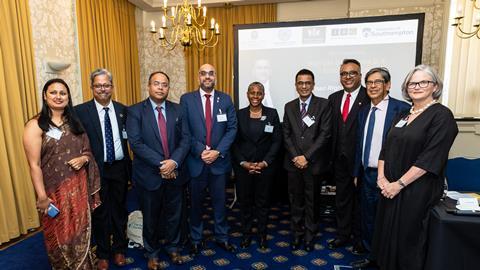Courts have played a key role in modernising the constitution of the world’s largest common-law democracy, the next chief justice of India said in London this week.
The Honourable Dhananjaya Y. Chandrachud, currently a justice in the Supreme Court of India, was visiting the UK in the run-up to the celebration of 75 years of Indian independence. He assumes the position of chief justice in November.
In a lecture at the Law Society, Chandrachud described his country’s 1950 constitution as 'very much a product of its time', drawing inspiration, among other places, from Britain’s Fabians. However it has evolved 'through a constant dialogue between the executive, the judiciary and the people of the republic' including landmark rulings by the Supreme Court, which is both a constitutional court and also the court of final appeal 'in every conceivable dispute', Chandrachud said.
The drafters of the constitution did not envision it only as a document governing the transfer of political power, he said. Rather it is transformative document which attempts to remedy discrimination grounded in class, caste and patriarchy.
India’s judiciary 'has constantly tried to align itself with the constitutional vision of a more just society,' Chandrachud said, citing rulings decriminalising same-sex relationships and overturning discrimination against women, for example over commissions on the armed forces.
However he cautioned against the tendency to treat the Supreme Court as the 'one stop solution' to complicated issues of policy and society. 'The use of the court as the first line of defence to solve complicated social issues is a reflection of the waning power of discourse and consensus building,' he said.
Chandrachud was speaking as hopes rise for a UK-India trade agreement. Amarjit Singh, chief executive of the India Business Group and a member of the Law Society’s India Working Group, said the judge’s lecture 'highlighted the shared values, respect for the rule of law, common law and ongoing cooperation between two of the world’s most vibrant liberal democracies. The visit will undoubtedly strengthen our countries’ legal profession through greater cooperation and collaboration'.
The Law Society has welcomed the start of negotiations for a free trade agreement, saying India continues to be one of the key priority jurisdictions.
This article is now closed for comment.




























3 Readers' comments